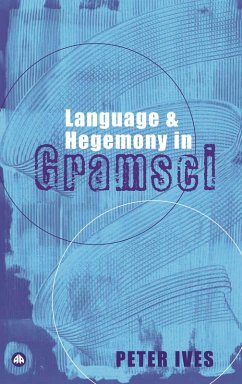Language and Hegemony in Gramsci introduces Gramsci's social and political thought through his writings on language. It shows how his focus on language illuminates his central ideas such as hegemony, organic and traditional intellectuals, passive revolution, civil society and subalternity. Peter Ives explores Gramsci's concern with language from his university studies in linguistics to his last prison notebook. Hegemony has been seen as Gramsci's most important contribution, but without knowledge of its linguistic roots, it is often misunderstood.
This book places Gramsci's ideas within the linguistically influenced social theory of the twentieth century. It summarizes some of the major ideas of Ferdinand de Saussure, Ludwig Wittgenstein, language philosophy and post-structuralism in relation to Gramsci's position. By paying great attention to the linguistic underpinnings of Gramsci's Marxism, Language and Hegemony in Gramsci shows how his theorization of power, language and politics address issues raised by post-modernism and the work of Michel Foucault, Jacques Derrida, Chantal Mouffe, and Ernesto Laclau.
This book places Gramsci's ideas within the linguistically influenced social theory of the twentieth century. It summarizes some of the major ideas of Ferdinand de Saussure, Ludwig Wittgenstein, language philosophy and post-structuralism in relation to Gramsci's position. By paying great attention to the linguistic underpinnings of Gramsci's Marxism, Language and Hegemony in Gramsci shows how his theorization of power, language and politics address issues raised by post-modernism and the work of Michel Foucault, Jacques Derrida, Chantal Mouffe, and Ernesto Laclau.
Dieser Download kann aus rechtlichen Gründen nur mit Rechnungsadresse in A, D ausgeliefert werden.









